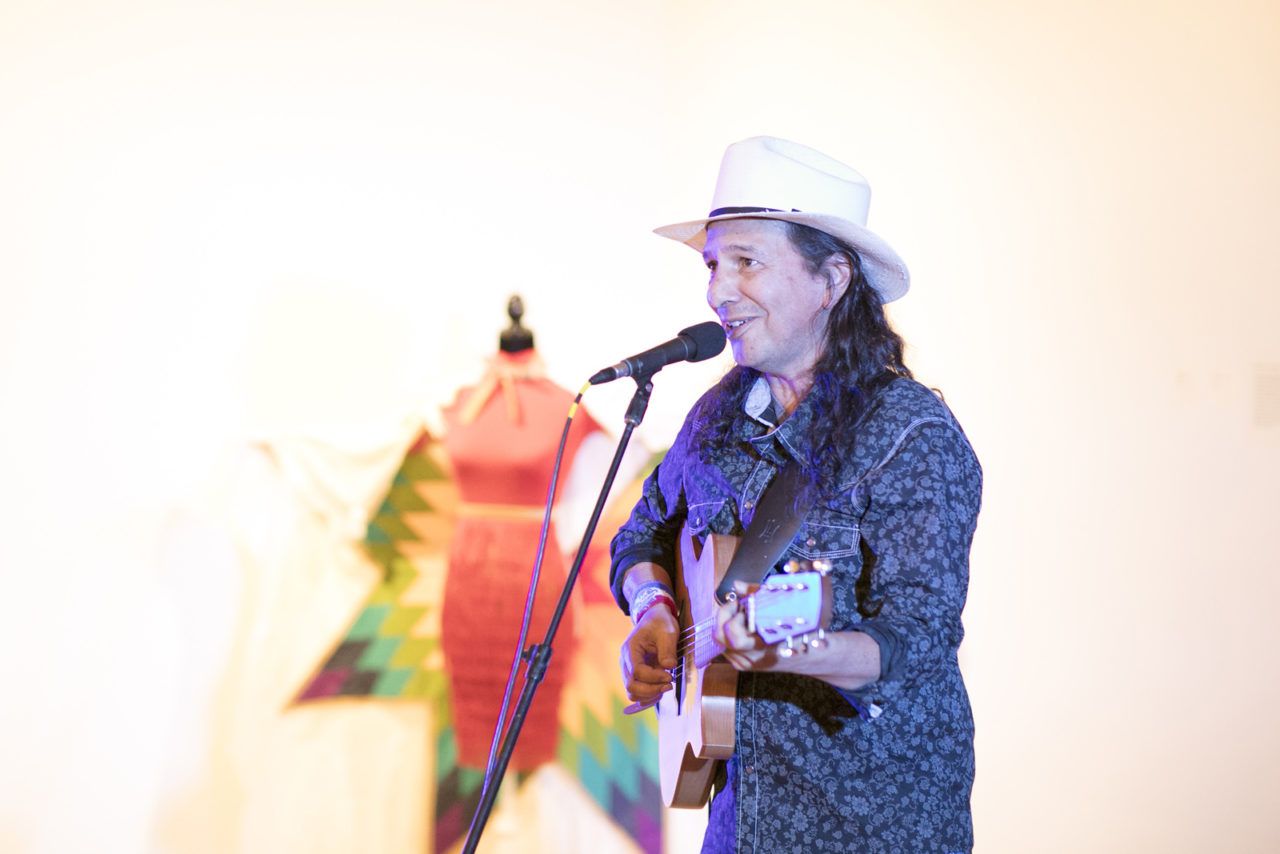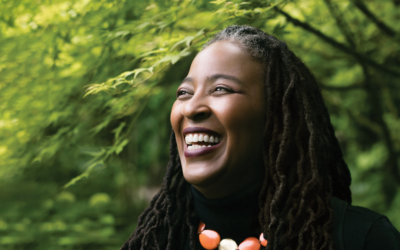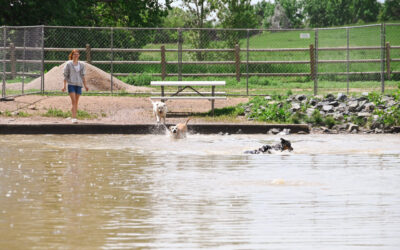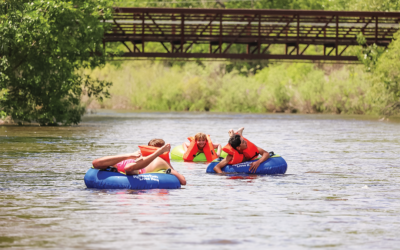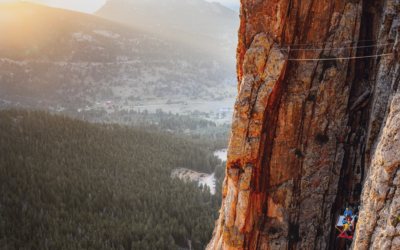A conversation with blues guitarist Cary Morin
It takes a lot to keep Cary Morin away from FoCoMX. He’s only missed the music festival once since its inception in 2009. But he’ll be absent when the 11th FoCoMX rolls out April 25-29, for very good reasons. Morin discusses his upcoming project, NOCO’s music tradition and more in this edited Q+A.

You’ve been playing music in Northern Colorado about as long as anybody. Are there any bands coming up now who remind you of yourself when you were starting out?
There’s all kinds of younger people that are really focusing on music. It makes me really happy to see that. Sam Mouton’s band [Write Minded], I’m really happy with their success. They’re playing a lot of the same places I used to play 25, 30 years ago when I was their age. It’s fun to watch them grow up musically in those same places.
Do you think they have any awareness of the generations of NOCO musicians who went before them?
I think they know. These are kids who grew up in Fort Collins. Sam Mouton’s dad, Andre Mouton, used to own the Rio Grande restaurant with his brother and some other guys. They had a fantastic band here in the ‘80s called Roots. I met them one day hitchhiking to a gig. They were playing across the street from where I was playing, and they picked me up. I didn’t know who these guys were, but as it turns out we’ve been friends for 35, 40 years, something like that. Those guys helped create the sound that was really popular around here at the time.
When you started performing around here in the 1980s, did you have a sense of following in other musicians’ footsteps?
I actually grew up in Great Falls, Montana, and the music culture there was really interesting. There were three clubs in town that had house bands that would play six nights a week, and a lot of those players were guys I looked up to. Even as a kid, if they saw me in the audience, they’d get me on stage. That really helped me get comfortable playing in front of people. And at that point in life you’re not fully grown as far as musicianship goes, so it’s good to have those older, more experienced players around to watch and learn from.
When I moved to Colorado [in the 1980s], there weren’t really house bands around here, but there were bands that played regular shows in Old Town, maybe once a week. A lot of those venues are still there – they’re under different names and they’ve gone through changes over the decades, but the rooms are the same. There were bands I would go to see not only what they did musically, but how they worked crowds. I was heavily influenced by several of those bands. And I still am to this day. I think that mentorship, if you’re lucky, lasts a lifetime.
Is there such a thing as a definitive Northern Colorado sound?
I think there is. I get to hear a lot of regional music from around the country. I think bluegrass – although it’s changed, like all musical styles do – I think it’s pretty prevalent around the Front Range. I think jam bands are bigger in this region than in other places. Those two styles are pretty prevalent. And sort of that California reggae sound – like say Sublime from way back in the day – that’s had some influence over the younger players in this area. When I say younger players, Sublime started influencing music around here 20 years ago. I think [all of] that has filtered down over the years. But, you know, that’s just the opinion of an old guy who doesn’t really leave the house very much.
I hear you. At our age, it’s a battle to stay relevant. Although I wonder if you feel like, in a sense, you’re as relevant now as you’ve ever been. With social media and the internet, are you able to reach audiences today that would have been more difficult to cultivate 20 years ago?
I’d say that would be true. Before the internet, what would really help get the word out was to play in front of bigger audiences. Now the internet and social media, that’s really the key. And our publicist, Mark Pucci, really helps to get the word out, too. But it’s not something you can do overnight. It takes a long time.
Your most recent CD, When I Rise, included some tracks with full band arrangements, after a string of acoustic-only albums that were very well received. Were you worried about how the new approach would be received?
Yeah, that was really a concern of mine. You know, “How are people gonna accept this?” But realistically, I played in bands for 30 years, so for a lot of people it wasn’t a big shock. I haven’t gotten any negative feedback on it. The band was a thing that had to happen sooner or later, in an effort to keep things fresh and experiment and try new things musically. With the recent recordings that I’ve done, and this one that’s coming up next month, it’s really an acoustic approach to a band situation. I’m playing finger-style acoustic guitar exclusively. It takes some effort to stick to that in a band arrangement, when there’s a whole lot of commotion and other things going on.
What’s coming up next month?
We’re going to go to Lafayette, Louisiana, to make a record with some guys that live around there. Just about every one of them has been involved in a Grammy-winning project. We’re recording in a classic studio called Dockside, and there’s been multiple Grammies to come out of it. So I’m hoping some of that rubs off.
And how did that come together?
An old friend of ours who used to play drums around here, Dave Nezat, was raised outside of Lafayette. Eventually he moved back to Louisiana, and whenever we’re in that area we always stop by and visit. Last year he asked me if I wanted to go out and see Dockside, and pretty much from that day on, we started talking about wouldn’t it be cool to record a project there. And we just talked about it until I reached a decision that, you know, I’m going to write a bunch of songs and we’re gonna go out there and take a swing at it.
We’re getting closer to the recording date [in late April], so my communication with the players is starting to ramp up. I’m really excited and curious. I’ve written all these songs, and I’ve spent some time recording at home to give the musicians a sense of what direction we might go. But ultimately we don’t know what’s going to happen until it happens.
Is that going to be released as a Cary Morin solo project? Or will the band have a name?
We haven’t really decided any marketing at this point. We’re not going to name the kid until after it’s born.
For more of our conversation and video of some of Morin’s recent tunes, visit www.nocostyle.com. For info on the Dockside album release, follow Morin on Twitter (@carymorin) or Facebook (www.facebook.com/CaryMorinBlues).
Blues guitarist Cary Morin performs at the Museum of Art Fort Collins during the First Friday Gallery Walk.
Photos by Sarah Porter, Sarah Porter Photography

